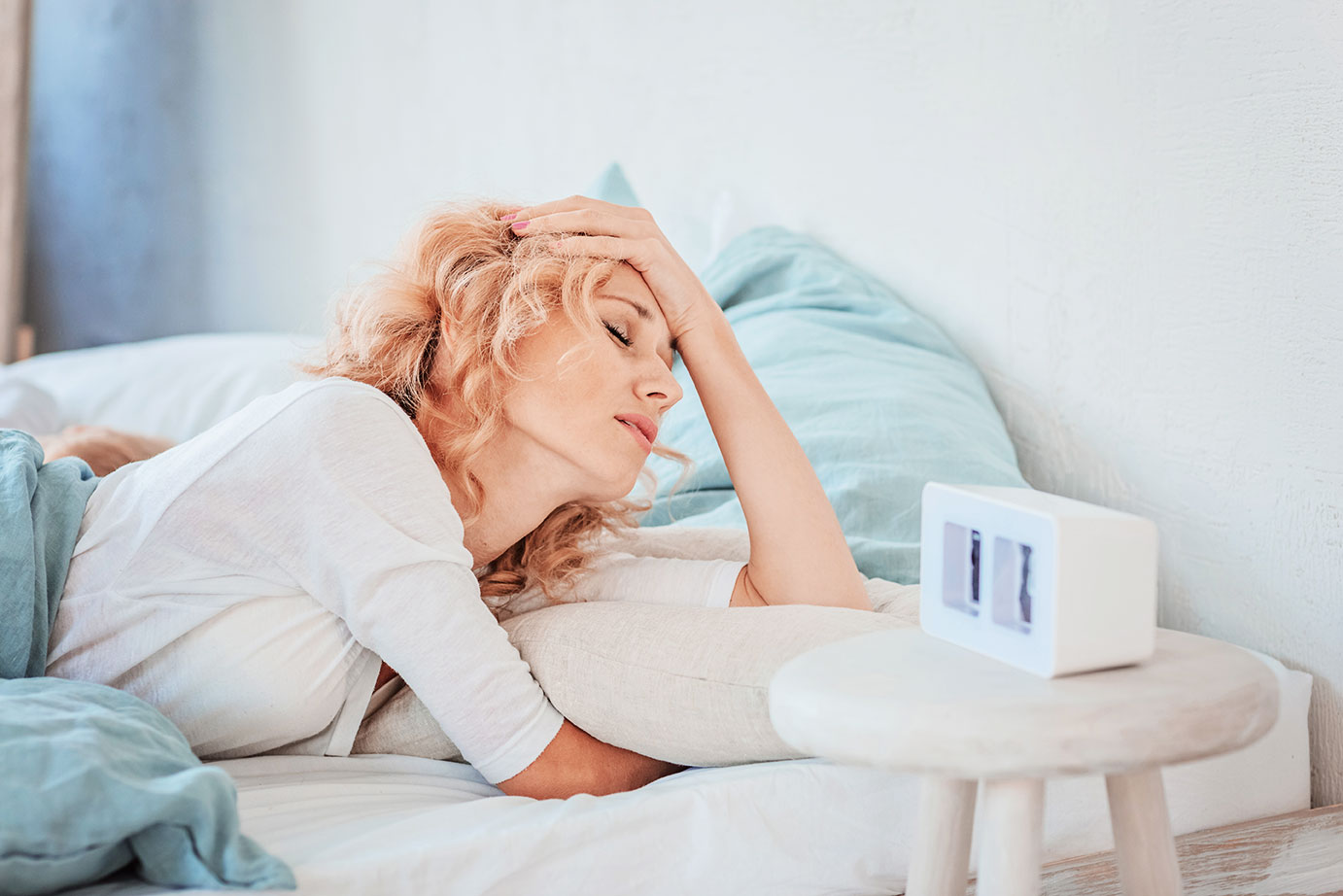Menopause is an unavoidable phenomenon, caused by the cessation of egg production. Each woman has a specific number of eggs after which the body undergoes significant changes coordinated by altered hormone levels. These hormonal levels, and their daily variations, vary from woman to woman. The quality of sleep, diet, level of physical activity, and the management of stress and anxiety are all factors that affect daily hormone levels. This means that all facets of a healthy lifestyle influence hormone production (of course!).
This also explains, in addition to genetics, that the symptoms experienced are not identical from one woman to another. Two main groups of well-known symptoms are:
1) The high frequency of hot flashes,
2) increased stress and anxiety problems.
Among the solutions, there are of course, the hormonal treatments and the use of certain antidepressants, for the drug approaches and the modification of the habits of life and the taking of supplements, for the natural approaches.
The average age of menopause in Western societies is 51, but it usually occurs between 42 and 56. A recent study reported that women under the age of 40 with menopausal symptoms are at increased risk for cardiovascular disease. Three 30-minute sessions per week of strenuous physical activity (during which you have difficulty, see impossibility, to discuss) would help reduce this risk back to normal.
Besides intense physical activity, which has a significant impact on reducing menopausal symptoms, diet is surely the second factor to consider. Consumption of soy flavonoids, and other legumes, is particularly important.
Flavonoids are a group of natural molecules from the large family of plant polyphenols. In soybeans, three flavonoids are responsible for reducing menopause symptoms: genistein, genistin and daidzein. Soy isoflavones, to be more precise, have long been suspected of increasing the risk of hormone-dependent cancers. However, as pointed out by Dr Richard Béliveau in a column in the Journal de Montréal (http://www.journaldemontreal.com/2017/04/09/fini-la-controverse) (French Only), it would be quite the opposite. A recent study of 6235 women showed that, on the contrary, soy consumption even has a preventive effect on hormone-dependent cancers (Zhang FF et al. Dietary isoflavone intake and all-cause mortality in breast cancer survivors: The Breast Cancer Family Registry. Cancer, published online March 6, 2017).
On the supplement side, three Vitoli products can help.
- Vitoli Menopause contains the daily dietary dose of finely identified soy isoflavone and the dose of black cohosh. It should act on all symptoms within the medium term. For those whose hot flashes interfere with their sleep, it is best to take the product in the evening while eating.
- Vitoli Stress and Anxiety. For those who do not have hot flashes, but who have difficulty managing the increase in stress and anxiety, Vitoli Stress and Anxiety is ideal.
- Vitoli Sleep. Sleep quality can also make a big difference and Vitoli Sleep can be used continuously or sporadically, when you feel the need.
Do not hesitate to write to us if you have any questions, our goal is to help you.







Very good product, I’ve got rid of my flashes after 2 weeks of Vitoli!
Hi,
Thank you for this nice comment! We enjoy getting feedback.
We would love to use your testimonial on our website. Someone from our team will contact you by email.
In the meanwhile, do not hesitate to write to us at info@vitoli.ca with any questions you may have in the future!
Thank you.